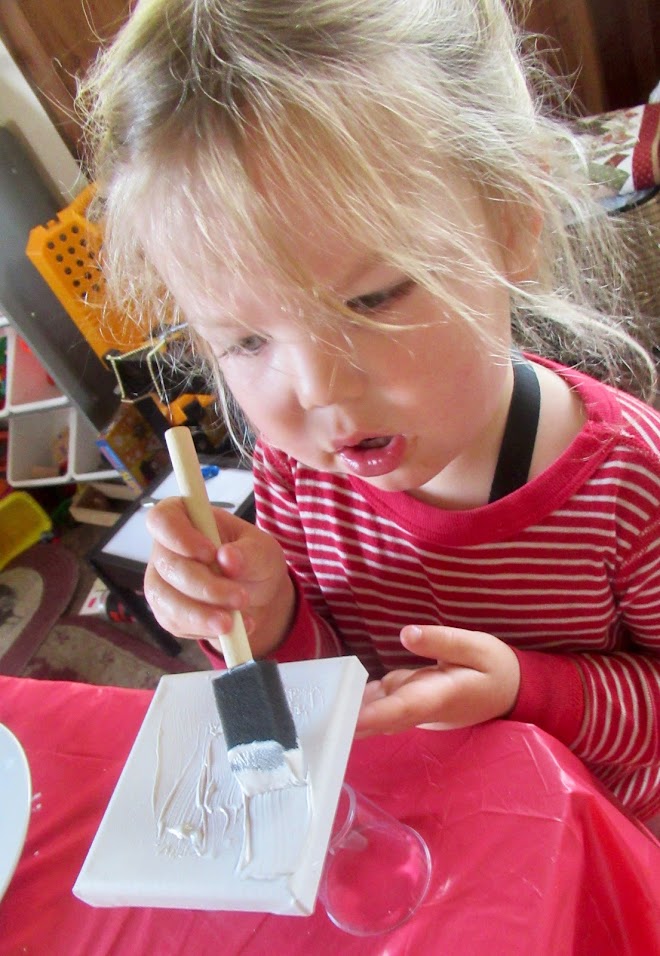Dig It Pops
I am taking advantage of this break in the rain, to get out in the orchard to prep the soil for the upcoming extravaganza, the planting of a hundred Heinz tomato plants. Simply put, I am turning the soil over and breaking up the dirt clods with a pitchfork, for eight rows, each about fifty feet in length by four feet in width, and mixing the ground cover into the dirt.
 |
| It's a start. |
I am a month later starting than last year due to the inclement weather, but am still well ahead of the mid-May planting date. Last summer the orchard lay fallow, allowing the soil to regroup, but we have big t’ings goin’ on this year, and I have been given free rein to pursue my interest in growing enough tomatoes, to make the production of catsup a reality.
The big news is that I have had to switch from digging with my right foot, to digging with my left, due to that problem with the second toe on my right foot, the one that Dr. Mulligan diagnosed as having a stress fracture. This is an injury left over from a year ago, that I just figured was old dude shit. Who’d a thought there was actually something wrong?
The irony is that being left-handed, I should have been using my left foot all along, that being my dominant side. However, growing up with older brothers, I learned to bat right-handed, kick right-footed, and of course, dig right-footed.
May I be candid here? [Editor’s note: Cringe]
I tend to lean precipitously to the left when it comes to politics, so it should come as no surprise that I am also left-handed. A dozen years ago I injured my right shoulder due to overuse. What had no effect on my left shoulder, sent my right shoulder into reconstructive surgery. The same thing apparently occurred a year ago, when I spent three months, nonstop, turning over soil at three different sites.
Had I been taught originally to dig with my left foot, I would probably never have experienced the technical difficulties with my second toe, that I did with my right foot. I guess I will find out this year. Just in case this seems like no big deal to you, switching digging feet, try it sometime, especially if you use a shovel or pitch-fork a lot.
Logistically speaking, the orchard poses particular challenges, one of them being the ongoing battle with gophers. Because we are Certified Clean Green, we employ only appropriate strategies to combat the pesky varmints, including traps, cats and vigilance. Last year I had issues with gophers in three spots in HappyDay Farms, West, and the orchard was one of them.
With more than a hundred tomato plants last year, the damage was manageable, and I just could not stress out over that which I had no control, so I let it go. This year I am going into the season knowing that I must be relentless, in order to ensure that I don’t lose as many as 20 % of my tomatoes.
Another issue is that the orchard is the low end of the line, as far as getting ag water to it. Whereas this is grand as far as gravity flow of the water is concerned, it is not good because the dirt and grit in the waterlines, also settle to the bottom.
Last year we were trying to take the filtration system apart weekly, to clean out the filter with a toothbrush. This year I am going to take care of this five-minute chore, daily. I am also going to upgrade the watering system by adding a third drip watering line to each row, to supplement the two that are already in place. If some is good, then more is better.
If only that same principle applied to labor. I am not able to go at the same rate as when I was younger, but I’m doing pretty well for a 64-year-old. That I can still work the soil at all is pure joy, in that I derive much pleasure out of the experience of starting the plants from seed, and then watching as the fruit develops and grows.
I have been not only enjoying my own fresh, home-grown tomatoes since 1974, I have been putting them up as well. I process peeled and quartered tomatoes, in a cold-pack; I cook down tomatoes to make marinara sauce; I cook it down further to make pizza sauce, tomato paste, and ultimately, the crowd favorite, catsup, or ketchup, if you prefer.
 |
| Tools of the trade |
The orchard and I will become great friends this summer, much as it has in the past. Of course, I am not playing baseball with three small boys anymore, but I am still enjoying myself immensely.
Even more so, now that I have eliminated the remainder of any right-leaning tendencies from my body. Let’s face it: I am-and always will be-one of those dirty, commie, pinko, perverted, cannabis-smoking, liberal, atheist, farmer-hippies.
But you already knew that.


















































